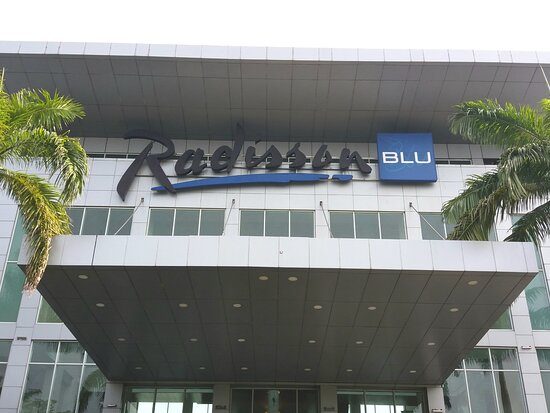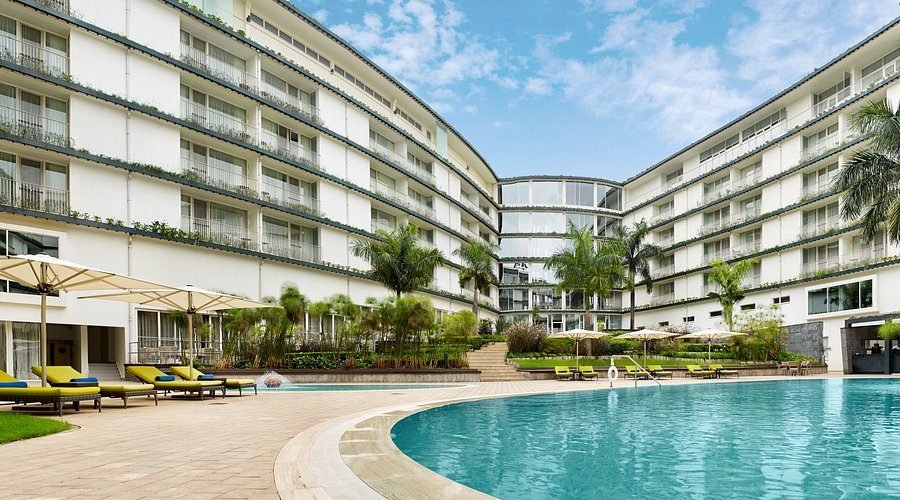In a world increasingly defined by environmental awareness, the hospitality industry is embracing a more responsible approach—blending luxury with sustainability. Nowhere is this shift more evident than in Africa’s vibrant urban hubs: Lagos (Nigeria), Kigali (Rwanda), and Accra (Ghana). In each of these cities, forward-thinking hotels are pioneering green hospitality by reducing their environmental footprint while still offering top-tier guest experiences.
Let’s explore how the Radisson Blu Anchorage Hotel in Lagos, Radisson Blu Hotel & Convention Centre in Kigali, and Kempinski Hotel Gold Coast City in Accra are redefining what it means to travel consciously in Africa’s most dynamic capitals.
Radisson Blu Anchorage Hotel, Lagos: A Sustainable Oasis in Nigeria’s Economic Nerve Center

Nestled along the scenic Lagos Lagoon on Victoria Island, the Radisson Blu Anchorage Hotel is a beacon of green hospitality in Nigeria’s bustling commercial capital. Beyond its stunning waterfront views and sleek modern design, this hotel operates with an eco-conscious heart.
Under the global Radisson Hotel Group’s Responsible Business program, the hotel has embraced sustainable practices such as:
-
Energy efficiency: Smart HVAC systems, LED lighting, and motion sensors reduce electricity usage.
-
Water conservation: Low-flow fixtures and a greywater recycling plant that repurposes water for landscaping and cleaning.
-
Waste reduction: Elimination of single-use plastics and extensive recycling partnerships.
-
Farm-to-table dining: Organic and locally sourced ingredients power the menus of its Lagoon Restaurant and Surface Bar & Grill.
-
Green housekeeping: Biodegradable cleaning agents and linen changes based on guest preferences.
What sets this hotel apart is its community involvement—from staff training to beach clean-ups and support for green startups. It’s not just about eco-luxury—it’s about impact.
Radisson Blu Hotel & Convention Centre, Kigali: Rwanda’s Trailblazer in Green Hospitality

Just five kilometers from the Kigali International Airport, the Radisson Blu Hotel & Convention Centre has cemented its status as Rwanda’s first Green Key-certified hotel. This certification, awarded only to establishments meeting high environmental and social standards, highlights Kigali’s rise as a clean, sustainable destination.
The hotel’s commitment to sustainability is embodied in:
-
Green Key certification: A globally recognized eco-label for excellence in environmental stewardship.
-
Eco-friendly housekeeping: Microfiber cleaning materials and chemical-free products.
-
Water recycling systems: Greywater reused for irrigation and landscaping.
-
No single-use plastics: Straws, stirrers, and bottles replaced with biodegradable alternatives.
-
Local and seasonal food sourcing: Supporting Rwandan farmers while reducing food miles.
What’s more, its expansive convention center incorporates eco-conscious event planning, from digital materials to sustainable catering. This makes it a prime choice for MICE (Meetings, Incentives, Conferences, and Exhibitions) tourism with a green twist.
Kempinski Hotel Gold Coast City, Accra: Ghana’s Commitment to Greener Tourism

In the heart of Ghana’s capital, Kempinski Hotel Gold Coast City stands as a luxury hotel with a conscience. As one of the few West African properties openly adopting sustainable practices, it’s leading Accra’s movement toward environmentally friendly hospitality.
Among its eco-highlights:
-
LEED (Leadership in Energy and Environmental Design) practices: Energy-efficient lighting, motion sensors, and water-saving fixtures.
-
Sustainable supply chains: Locally sourced building materials and decor elements.
-
Recycling and waste management: On-site composting and partnerships with local recycling firms.
-
CSR initiatives: Education programs, local sourcing, and employment for marginalized groups.
This hotel not only prioritizes guest comfort but also recognizes its role in supporting Ghana’s vision for sustainable urban development.
Sustainable Travel Tips for Eco-Conscious Travelers
Whether you’re visiting Lagos, Kigali, or Accra, your travel choices can make a difference. Here are some tips to reduce your footprint while enjoying your trip:
1. Choose certified green hotels – Look for eco-labels like Green Key or LEED.
2. Bring a reusable water bottle – Avoid contributing to plastic waste.
3. Support local – Eat at locally owned restaurants and shop at markets.
4. Offset your carbon emissions – Some airlines and hotels offer this option during booking.
5. Take public transport or walk – Especially in cities like Kigali, known for clean, safe streets.
6. Respect local conservation efforts – Participate in clean-up programs or donate to local green NGOs.
7. Minimize towel/linen changes – A small act that saves water and energy.
8. Avoid over-tourism – Explore lesser-known neighborhoods or natural sites outside major tourist zones.
Quick Fact Sheet: Eco-Friendly Travel at a Glance
|
City |
Hotel |
Eco Certification/Program |
Highlight |
|
Lagos |
Radisson Blu Anchorage Hotel |
Radisson Responsible Business |
Water recycling, plastic-free operations, local cuisine |
|
Kigali |
Radisson Blu Hotel & Convention Centre |
Green Key Certified |
Greywater reuse, no plastic, eco-conferences |
|
Accra |
Kempinski Hotel Gold Coast City |
LEED-aligned practices |
Energy efficiency, local sourcing, CSR community support |
A Greener Africa is Possible
As African cities continue to grow, the hospitality industry has a pivotal role to play in creating a future where luxury and sustainability go hand in hand. The examples from Lagos, Kigali, and Accra prove that eco-friendly practices aren’t just trendy—they’re transformative.
So whether you’re traveling for business, leisure, or a mix of both, let your next hotel stay be more than a booking—let it be a vote for a greener, cleaner Africa.


